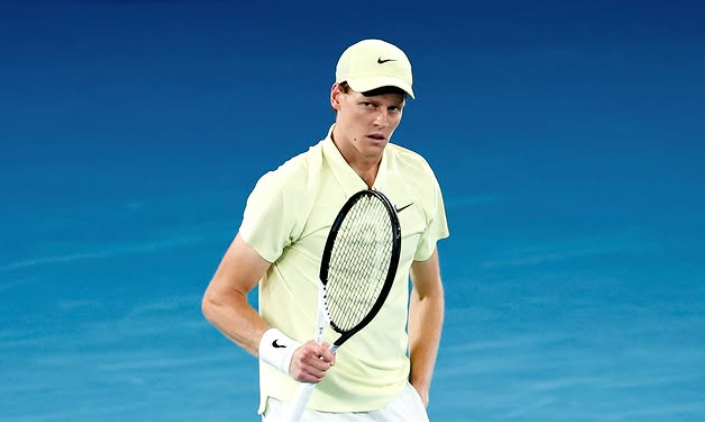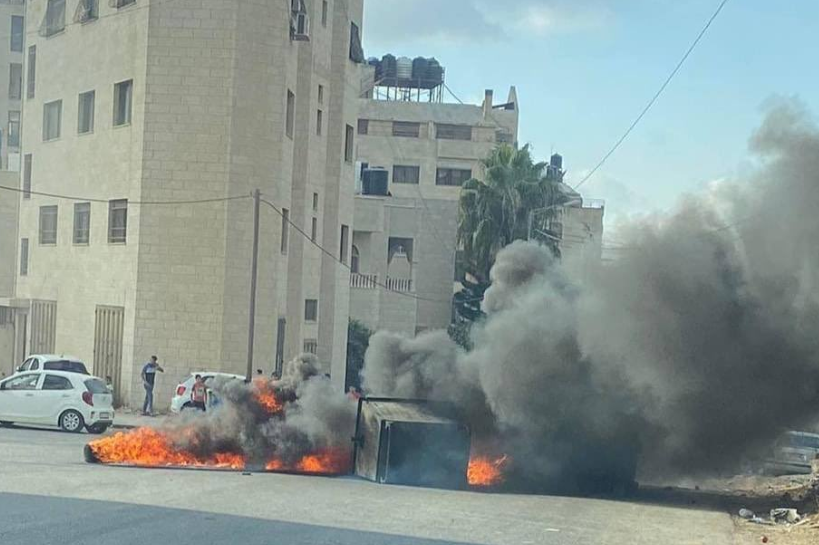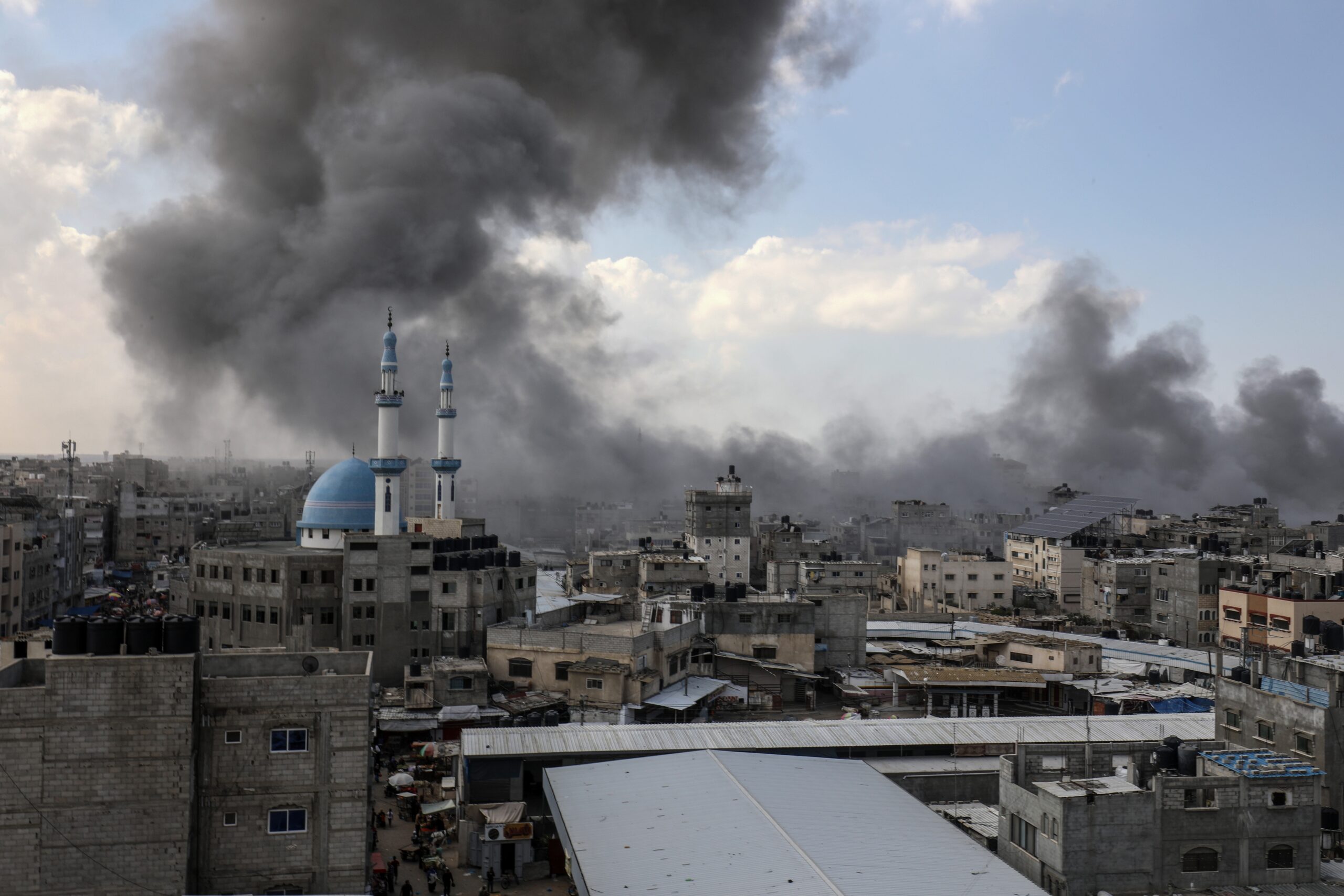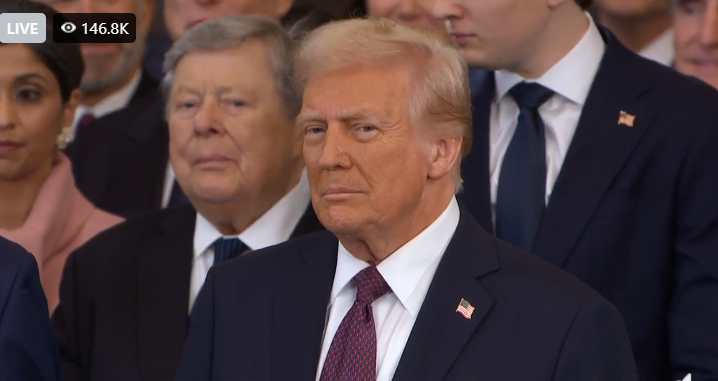In military dress uniform and flanked by members of the military’s high command, Defense Minister Vladimir Padrino said in a televised address that Maduro was the country’s legitimate leader — and that Washington and other regional powers were trying to “knock out progressive governments that make them uncomfortable.”
“We will not bend to foreign intervention or a government not elected by the people,” Padrino said in an address aired by state broadcaster VTV.
Moments before Padrino spoke, VTV aired messages of support from Venezuela’s eight regional commanders from their military outposts throughout the country.
With two declared leaders, unrest in the streets and foreign powers taking sides, Venezuelans are dealing with a mounting political crisis on top of deep economic troubles.
The head of Venezuela’s opposition-led legislature, Juan Guaido, declared himself acting president Wednesday amid massive anti-government protests, openly opposing socialist President Nicolas Maduro, whose opponents say was illegitimately elected for a second term.
Some nations — including the United States, Canada and at least 11 Latin American countries — have said they’ll recognize opposition leader Juan Guaido as president, while Russia, China and others are backing Maduro, setting the stage for a struggle for Venezuela’s future both inside and outside the South American country.
Maduro seized on the US’ recognition of Guaido, accusing the United States of backing an attempted coup and announcing he was cutting remaining political and diplomatic ties with Washington — and giving US diplomats 72 hours to leave the country.
Maduro’s next high-profile move may come Thursday, when he is expected to speak at Venezuela’s Supreme Court, where he has support.
Diplomatic tensions
A sharp international divide has emerged in reaction to Venezuela’s leadership crisis.
Countries officially recognizing Guaido as president include the United States, Argentina, Brazil, Canada, Chile, Colombia, Ecuador, Paraguay and Peru. European Council President Donald Tusk expressed support for him and called on other European countries to join him.
British Foreign Secretary Jeremy Hunt said Thursday that “it is clear that Nicolas Maduro is not the legitimate leader of Venezuela” and that the UK believes “Juan Guaido is the right person to take Venezuela forward.”
“We are supporting the US, Canada, Brazil and Argentina to make that happen,” Hunt said ahead of a meeting with US Vice President Mike Pence in Washington.
And US Secretary of State Mike Pompeo brushed off Maduro’s order that US diplomats leave the country. Maduro does not have “the legal authority to break diplomatic relations with the United States or to declare our diplomats persona non grata,” Pompeo said Wednesday evening in a statement.
On Thursday, Pompeo urged all members of the regional Organization of American States to support Guaido, saying Maduro’s regime is “now defunct” and illegitimate.
Pompeo also announced that the US, in response to a request from the opposition-led legislature, is ready to give Venezuela $20 million in aid to help with food and medicine shortages, to be distributed “as soon as logistically possible.”
The United States said it has asked for an open meeting of the UN Security Council to discuss Venezuela on Saturday morning.
Russia, China, Cuba and Turkey are among the nations backing Maduro — and Russia in particular is criticizing the US for undermining him.
Washington’s interference in Venezuela could lead to “lawlessness and bloodshed,” the Russian foreign ministry said Thursday in a prepared statement.
“We see in the unceremonious actions of Washington a new demonstration of total disregard for the norms and principles of international law, an attempt to play the role of the self-proclaimed arbiter of the destinies of other nations,” the statement reads.
President Donald Trump vowed in a statement Wednesday to use “the full weight of United States economic and diplomatic power to press for the restoration of Venezuelan democracy.”
Depending on Maduro’s response to the protests, Trump is prepared to take a range of actions in retaliation, including possible oil sanctions, two sources familiar with White House deliberations said.
The US Embassy in Caracas issued a security alert indicating that US diplomats and their families will be restricted to travel only within a few neighborhoods in Caracas and school-age children will be staying at home.
The embassy will remain open during regular business hours but all visa appointments for Thursday have been canceled, the alert said.
UN Secretary-General Antonio Guterres called for dialogue Thursday.
Speaking at the World Economic Forum in Davos, Switzerland, the UN chief said he hoped discussions could “avoid an escalation that could lead to the kind of conflict that would be a total disaster for Venezuela and the Venezuelan people and for the region.”
Maduro and Guaido vie for power
Guaido, 35, declared himself acting president on Wednesday in a dramatic swearing-in before throngs of supporters in Caracas, days after Maduro took the oath of office for a second term.
Guaido said the day marked the beginning of an unstoppable movement to restore independence and democracy to the troubled nation, and he called for new elections.
“We know this will have consequences,” Guaido said.
One friction point is Venezuela’s deep economic crisis. High spending on social welfare programs and mismanagement of its oil wealth has left Venezuela’s economy in tatters and residents fleeing in search of food and medicine. The United Nations estimates as many as 3 million Venezuelans have left the country since 2014.
But Maduro’s election in May also was a flashpoint. It was boycotted by opposition groups and largely discredited by opponents, with hundreds of complaints of election violations and a low turnout.
That led the US and many of Venezuela’s neighbors to declare they wouldn’t recognize Maduro’s presidency, paving the way for Guiado’s declaration Wednesday.
10 dead in protests, local NGO says
Sporadic clashes erupted after Guaido’s swearing in — with news footage showing National Guard members launching tear gas canisters at anti-government demonstrators near one of the main highways in the capital.
“The young people of my country need freedom,” Grace Chacon said at a march in Caracas.
“We need to get loud. We need to be the voice of our country to say we are in trouble, we are in (an) SOS situation. … We’re fighting without guns. We’re fighting without anything. We just have our hearts. We just have our courage.”
Ten people died in nationwide protests Wednesday, Marco Antonio Ponce, executive director of the local NGO Observatorio Venezolano de Conflictividad, told CNN.
CNN has not independently verified the death toll and no official figures have been released by the government.
“I have no words to express the pain I feel as I continue to learn that Venezuelans have been killed during the protests in the last hours,” Guaido tweeted Wednesday evening. “To their families, I can only guarantee that Justice and Peace will reign in our homeland.”
Authorities arrested 175 people in Caracas since Wednesday in connection with the protests, according to Foro Penal, a pro bono lawyers’ group.
Signs of unrest emerged earlier this week in Caracas. A small team of soldiers, claiming to be members of the armed forces, attempted an uprising against Maduro and triggered violent street protests.
On Monday, the Venezuelan Supreme Court ruled that the opposition-led National Assembly — Venezuela’s legislative body — is illegitimate, and that no law discussed there holds any legal value.
Maduro: US bringing ‘puppet presidency’
Maduro on Wednesday addressed a sea of supporters wearing red — symbolic of the government’s socialist revolution — from the balcony of the Miraflores presidential palace. He recounted a long history of “gringo interventions and coups” and said that only Venezuelans can elect and remove their government leaders.
“The imperial government of the United States is leading a coup attempt against us in order to install a puppet presidency that they can control in Venezuela,” he said in a speech broadcast live on state broadcaster VTV.
“We cannot accept the invasive policies of the empire, the United States, the policies of Donald Trump,” he said. “Venezuela is a land of liberators.”
“We will not surrender,” Maduro added.
“We are here to reject any type of attempt to interfere with our nation,” said Betulio Reyes, a pro-Maduro rally participant. “We are independent and sovereign and can decide on the fate of our own lives.”
Jose Luis Gutierrez of Caracas vowed to “defend my country and my President against any foreign insurgency.”










Leave a Reply